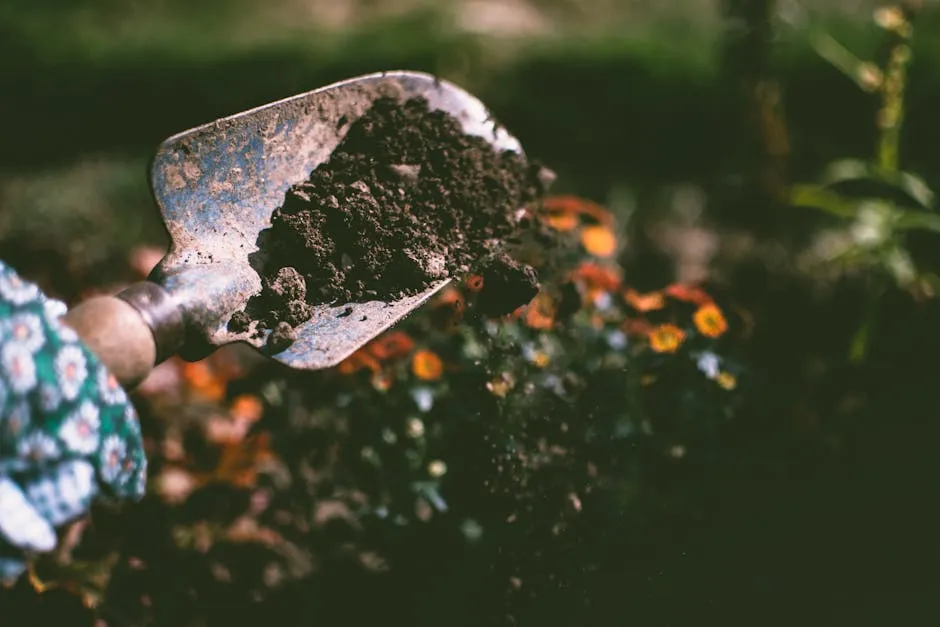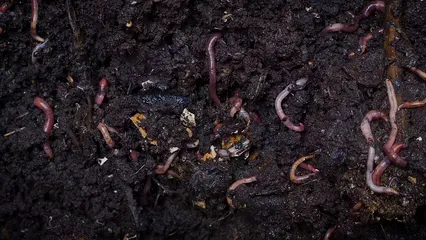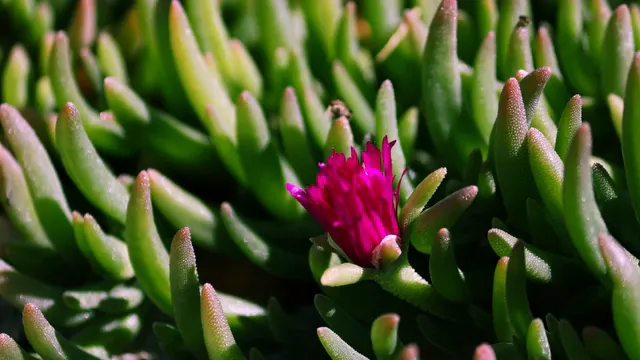

Ferrous Sulphate for Plants: A Comprehensive Guide
Introduction
Ferrous sulphate is a vital compound for plant care. It helps combat iron deficiency, a common issue that affects many plants. When plants lack iron, they struggle to produce chlorophyll, leading to yellowing leaves and poor growth. This article aims to provide a detailed understanding of ferrous sulphate and its benefits for plants.
Summary and Overview
Ferrous sulphate, or FeSO4, is an iron salt with important chemical properties. It serves as a crucial micronutrient for healthy plant growth. Without adequate iron, plants exhibit symptoms of deficiency, including chlorosis, which is characterized by yellow leaves. This article will cover its definition, benefits, application methods, and more to help you optimize your gardening practices.

Optimizing your gardening practices can lead to healthier plants and better yields. best organic fertilizers for vegetable gardening in limited spaces 2024
What is Ferrous Sulphate?
Definition and Composition
Ferrous sulphate, scientifically known as iron(II) sulfate, has the chemical formula FeSO4. It exists in various forms, including heptahydrate and monohydrate. The heptahydrate form, often seen in gardening, is highly soluble in water, making it readily available for plant uptake. This solubility is crucial for correcting iron deficiency in soils.
Key Properties
Ferrous sulphate appears as a greenish or yellowish crystalline powder. Its solubility in water allows it to be absorbed quickly by plant roots. The pH level of ferrous sulphate is typically acidic, which can help lower soil pH when applied. This quality is especially beneficial for plants that thrive in acidic conditions.

Benefits of Using Ferrous Sulphate in Gardening
Correcting Iron Deficiency
Ferrous sulphate is a powerful remedy for iron deficiency in plants. When plants lack iron, they often exhibit chlorosis, where leaves turn yellow while veins remain green. This condition can stunt growth and reduce yields. Research shows that up to 30% of plants, especially those in alkaline soils, suffer from this deficiency. By applying ferrous sulphate, you can effectively replenish iron levels. The compound is readily absorbed by plant roots, quickly improving leaf color and overall vitality.
If you’re looking to give your plants that extra boost, consider using Ferrous Sulfate Granules. They’re like a multivitamin for your garden, ensuring your plants have the iron they need to thrive and flourish!

Promoting Healthy Growth
Iron is essential for chlorophyll production, which is vital for photosynthesis. Ferrous sulphate enhances chlorophyll synthesis, leading to greener, healthier plants. This increase in chlorophyll boosts photosynthesis, allowing plants to absorb more sunlight and convert it into energy. As a result, plants grow more vigorously, producing more blooms or fruits. Healthy foliage also helps plants resist diseases better, ensuring a robust garden.
To further support your gardening journey, consider investing in an Essential Gardening Tools Set. Equipped with all the necessary tools, it makes gardening easier, allowing you to focus on what really matters—growing beautiful plants!

Soil pH Adjustment
Ferrous sulphate can effectively lower soil pH, creating a more acidic environment that benefits acid-loving plants. Many plants, such as azaleas, rhododendrons, and blueberries, thrive in acidic soils. Lowering the pH can enhance nutrient availability and improve overall plant health. Applying ferrous sulphate not only corrects iron deficiency but also supports the growth of these specific plant types.

How to Apply Ferrous Sulphate
Application Methods
There are several effective methods to apply ferrous sulphate. You can use soil application, foliar spray, or fertigation. For soil application, mix 1 to 2 pounds of ferrous sulphate per 100 square feet of soil. For foliar sprays, dissolve 2.5 grams in one liter of water and spray on leaves. In fertigation, dilute the recommended amount in water before applying through irrigation systems. This versatility allows you to choose the best method for your gardening needs.
While you’re at it, why not check out a Soil Moisture Meter? It’s the perfect gadget to ensure your plants are never thirsty, giving you peace of mind while you garden!
Recommended Dosage
Dosage varies based on plant type and application method. For general use, applying 1 pound per 100 square feet is effective for most garden plants. For more sensitive plants, consider using half the amount. Always follow manufacturer instructions to avoid toxicity. Over-application can harm plants and soil health, so monitoring is crucial. Adequate dosage ensures benefits without adverse effects.

Timing and Frequency of Application
When to Apply
The best time to apply ferrous sulphate is in spring. This season marks the beginning of new growth for most plants, making it an ideal time for nutrient replenishment. Applying in early spring helps ensure that plants receive the iron they need as they start to produce new leaves. Fall is another critical time for application. During this season, you can replenish iron levels in the soil, preparing plants for the winter months. By applying in both seasons, you can support healthy growth and vitality.

And while you’re prepping for the seasons, don’t forget to grab a Compost Bin for Organic Gardening. It’s a fantastic way to recycle kitchen scraps into nutrient-rich compost, making your garden thrive even more!
Frequency of Application
The frequency of application largely depends on soil conditions and plant needs. For most garden plants, reapplication every 4 to 6 weeks is effective during the growing season. If you notice symptoms of iron deficiency, such as yellowing leaves, consider applying ferrous sulphate more frequently. In established gardens, a fall application can help maintain iron levels through winter. Always monitor your plants and soil health to determine the best intervals for reapplication, adjusting as necessary for optimal results.
Potential Risks and Precautions
Toxicity Concerns
While ferrous sulphate is beneficial, over-application can lead to toxicity. Excess iron can harm plant roots, causing leaf burn and stunted growth. It may also disrupt soil health, affecting beneficial microorganisms. To prevent these issues, always follow recommended dosages. Conduct soil tests to determine existing iron levels before application. This practice helps ensure that you provide just the right amount of iron without risking plant health.

As you think about plant health, consider using Organic NPK Fertilizer for an added nutrient boost! It’s a great way to ensure your plants are getting the complete nourishment they need to thrive.
Environmental Impact
Consider environmental factors when using ferrous sulphate. Runoff from treated areas can contaminate nearby water sources, impacting aquatic life. To minimize this risk, avoid applying ferrous sulphate before heavy rain. Implementing proper application techniques, such as using barriers or planting cover crops, can help reduce runoff. Additionally, always apply the product according to guidelines to ensure both plant health and environmental safety.

Alternative Options and Complementary Products
Comparing with Other Iron Sources
While ferrous sulphate is a popular choice for providing iron, there are alternatives worth considering. Chelated iron, for instance, is designed for better absorption by plants. This form binds iron with organic molecules, improving its availability in various soil pH levels. Unlike ferrous sulphate, chelated iron can be effective in alkaline soils, making it suitable for specific gardening needs. Additionally, other iron sources like iron chelates come in various formulations, such as EDTA and DTPA, each with unique characteristics. These differences mean that depending on your soil type and plant requirements, you might choose one over the other for optimal results.
And while you’re exploring iron options, don’t miss out on a Soil pH Testing Kit. It’s essential for understanding your soil’s needs and ensuring you provide the right nutrients for your plants!
Complementary Fertilizers
To enhance plant growth further, consider using complementary fertilizers alongside ferrous sulphate. For instance, a balanced NPK fertilizer can provide essential nutrients, ensuring plants receive nitrogen, phosphorus, and potassium in addition to iron. Organic options, like compost or well-rotted manure, not only improve soil structure but also add valuable micronutrients. When combined with ferrous sulphate, these fertilizers can create a well-rounded nutrient profile that supports robust plant health and growth. For more insights on improving soil health, check out composting basics for improving soil health.

Using complementary fertilizers alongside ferrous sulphate can enhance plant growth significantly. composting basics for improving soil health

Conclusion
In summary, ferrous sulphate offers significant benefits for plant health by correcting iron deficiency and promoting vigorous growth. It’s essential to monitor iron levels and apply ferrous sulphate appropriately to avoid overuse. By incorporating this valuable compound into your gardening practices, you can ensure healthier, more vibrant plants. So, why not give ferrous sulphate a try? Your garden will thank you for it!
FAQs
What plants benefit most from ferrous sulphate?
Ferrous sulphate is especially beneficial for several plant types. Acid-loving plants like azaleas and blueberries thrive with added iron. Vegetables such as spinach and beans also show significant improvement. Fruit trees, including citrus and apple, appreciate this supplement too. These plants often exhibit iron deficiency symptoms, making ferrous sulphate a great remedy.
How quickly will I see results after applying ferrous sulphate?
Most gardeners notice results within a week. Leaves may start regaining their green color, indicating improved chlorophyll production. This quick response is due to ferrous sulphate’s high solubility. However, the exact timeline can vary based on factors like soil conditions and plant type. Consistent application will yield the best results over time.
Can ferrous sulphate harm my plants if over-applied?
Yes, over-application can lead to toxicity in plants. Signs include leaf burn and stunted growth. Excess iron disrupts soil health, affecting beneficial microorganisms. To prevent these issues, stick to recommended dosages. Conducting soil tests before application is also wise. This helps ensure you provide the right amount of iron for your plants.
Is ferrous sulphate safe for pets and humans?
Ferrous sulphate is generally safe when used as directed. However, it is not intended for consumption. Keep pets away from treated areas until the product is dry. Always store it in a secure place, away from children. Wearing gloves during application is a good practice to avoid skin contact.
Can I use ferrous sulphate in my hydroponic system?
Yes, ferrous sulphate can be used in hydroponics. It provides iron, essential for healthy plant growth. However, be cautious with concentrations. Hydroponic systems require precise nutrient ratios, so monitor levels closely. In soil gardening, ferrous sulphate can be more forgiving. Adjusting for hydroponics ensures your plants receive optimal nutrients without excess.
Please let us know what you think about our content by leaving a comment down below!
Thank you for reading till here 🙂
All images from Pexels



